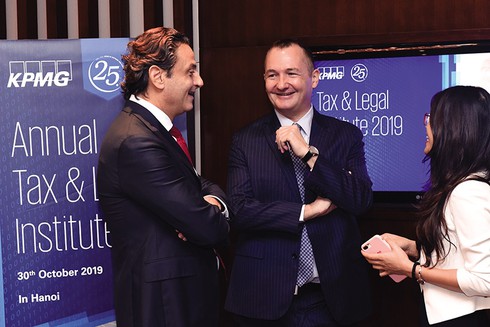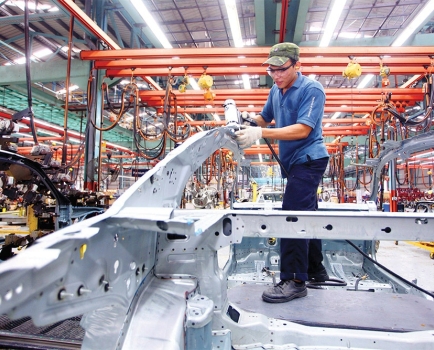Aligning Vietnamese tax procedures with the world
Wed, 06 Nov 2019 17:09:00 | Print | Email Share:
Vietnam is welcoming more investors and the country is witnessing an increase in foreign direct investment. However, legislation and taxation in the country are concerns for financiers with varying meanings in legal documents as well as in implementation.

Warrick Cleine, chairman and CEO of KPMG in Vietnam and Cambodia, updated VIR’s Bui Thu on the most notable issues of the Vietnamese tax and legal system that foreign-invested enterprises should care about.
What do you believe is the most important point for overseas investors related to notable tax movements when doing business in Vietnam?
I think everybody has to understand that the tax system is changing continually in Vietnam. Most of the changes are driven by Vietnam’s modernisation and integration with the global economy in the global tax system, so anybody that is investing in the country has to understand that almost all the information they can get about the tax system is out of date, because changes are already happening.The most important thing that is going on is continual tax reform and modernisation of the tax system.
Which tax-related obstacles do foreign investors often struggle to adapt to in Vietnam?
There are three common issues. The first one is the changing tax law, which creates uncertainty for foreign investors, so it is important for them to understand what is in the law and how it affects business.
A second issue is that compliance procedures can take up time and resources. Anybody entering the market has to understand that they need to hire the right people and consultants and get the right advice so they can make sure they comply with tax laws and requirements like filling out the forms, paying taxes, and dealing with tax authorities.
The third thing that investors have to be familiar with is the dispute process. When they have a disagreement with tax authorities, knowing the procedures and deadlines for appealing to the authorities can be time consuming and often surprising for investors on how this process is carried out in Vietnam compared with other countries. The importance of communicating to tax authorities, listening to their position and putting across yours, is complicated and can create risk and costs for investors.
What is the role of technology and digital tools in taxation in Vietnam, in the context of the Fourth Industrial Revolution?
There are two areas where we have to think about the use of digital technology and things that are changing. One is the use of tech and tax administration. Examples include e-filing, meaning submitting your tax returns online; e-invoicing to issue invoices by email; and using technology to transform from a paper-based system with official stamps. There is also the use of data and analytics by tax authorities to choose who they are going to audit, as another example. As we see an increasing use of technology in tax administration, we see efforts to make the system more efficient for businesses and the tax authorities, which can save money and create certainty.

Warrick Cleine, chairman and CEO of KPMG
Second, you can see in Vietnam the use of technology in transforming economic activities such as online trading, and the use of new technology platforms like Airbnb or Grab, and cross-border transactions and investment. These activities engage Vietnamese companies that can trade globally online. With these innovations and new digital business activities, the tax system has to change so that when a person does business with an online platform that has no presence in Vietnam, there is a way for Vietnam to tax that activity.
What is also important will be how the tax system develops to handle those changes and adapt to consumer behaviour and modern trends in business.
From the view of a global leading consulting firm, what tips can you give Vietnamese policymakers in terms of taxing tech companies such as Facebook, Youtube, and Google?
The number one point on this is that Vietnam cannot act alone – it must act in line with other countries. Vietnam is part of the OECD initiative to introduce a new taxing approach to these companies. It is really important that Vietnam participates in that process and then introduces regulations and laws in line with what happens internationally, because the challenge here is that businesses are global but tax is local.
That means every country is going to be changing laws to do this and if countries change them in different ways, then it may damage the economy. If they change them in line with everybody else then it will be consistent globally and will be better for taxpayers and for tax authorities.
By: VIR/VOV
Source: https://english.vov.vn/economy/aligning-vietnamese-tax-procedures-with-the-world-405767.vov
---------------------------------------------
Same category News :













